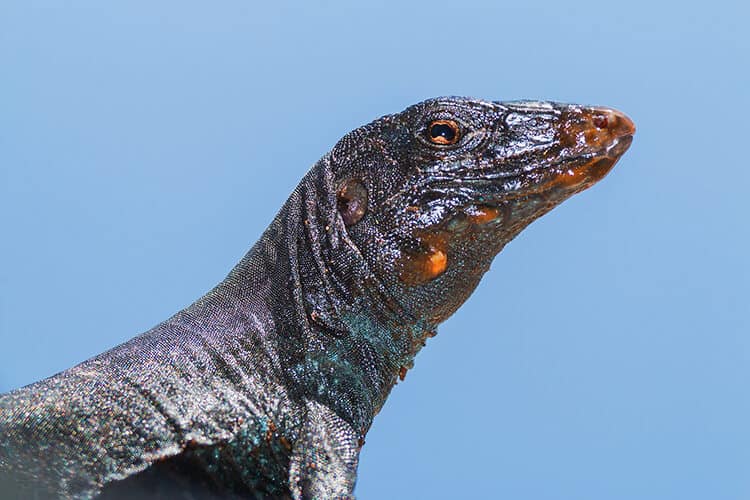
GEOGRAPHICAL UK:Just seven years ago, Redonda, a tiny, little-known volcanic island in the Caribbean Sea, resembled a barren, dusty moonscape. Formerly a haven for breeding seabirds – among them the magnificent frigatebird and three species of booby (masked, red-footed and brown) – the island had been stripped of its vegetation by feral goats and its birdlife preyed upon by thousands of large, predatory black rats, brought by European colonisers who came to mine the island’s mountains of guano (bird excrement).
Between the 1860s, when the first mining operations began, and the beginning of the First World War, hundreds of miners exported several tonnes of guano (known at the time as ‘white gold’) every year for use as fertiliser and in the manufacture of gunpowder. When they left, the damage continued; Redonda’s unique species slowly disappeared and a number were driven to extinction. As the vegetation disappeared, loose soil and rocks slid into the sea, smashing and choking the coral reefs that surround the island. By 2017, just a single bird was still resident on the island.
Today, however, Redonda (now part of Antigua and Barbuda) is lush and green once more, following the success of an ambitious restoration programme that has transformed the island into a thriving wildlife sanctuary. ‘It’s not often in conservation that we get to see the immediate results of our efforts,’ says Mike Appleton, director of protected area management at Re:wild, an environmental NGO founded by actor Leonardo DiCaprio and the Global Wildlife Conservation organisation. ‘It usually takes years, if not generations, to begin to see signs that species and habitats are recovering because of our actions.’
Enjoying this article? We have thousands more for you.
Get immediate access to over 1,000 Geographical magazines in our archive back to 1935.
Sign up today and you will soon be travelling back through time reading all our amazing features of the last eight decades PLUS… you also get to enjoy every new issue of Geographical each month going forward in both print and digital formats.
The new protected area – named the Redonda Ecosystem Reserve – covers almost 30,000 hectares of land and sea, including the entire island, its surrounding seagrass meadows and a 180-square-kilometre coral reef. Though largely unexplored, the area is believed to contain at least 30 globally threatened and near-threatened species, along with globally important seabird colonies.
Since the removal of the invasive species (an estimated 6,000 rats and 60 goats), Redonda has made a spectacular recovery. In particular, the population of the Redonda ground dragon – a critically endangered lizard – has increased 13-fold since restoration first began. The total vegetation biomass of the island has increased by more than 2,000 per cent – thousands of native trees have taken root, anchoring the soil – and many native animal and plant populations have risen exponentially; 15 species of land bird have returned, including burrowing owls, and seabirds such as boobies and frigatebirds are returning to nest in greater numbers.
‘To date, the restoration of this precious landscape has been truly remarkable,’ says Johnella Bradshaw, Redonda programme coordinator at the Environmental Awareness Group, Antigua and Barbuda’s leading environmental NGO. ‘So much hard work and dedication, from so many people, has gone into making the establishment of the Redonda Ecosystem Reserve possible – this designation will ensure we can continue rewilding the island to the beautiful, biodiverse environment it once was.’
Experts say they hope Redonda’s restoration and protection will be used as a model for similar projects across the Caribbean, where similar environmental tragedies have unfurled across many of the offshore islands. Despite comprising just 0.15 per cent of the Earth’s landmasses, Caribbean islands have suffered a higher rate of species extinctions than any other region. According to research by conservation charity Flora & Fauna, they account for at least ten per cent of the world’s recorded bird extinctions, 40 per cent of mammal extinctions and more than 60 per cent of reptile extinctions since 1500.
‘The Caribbean islands are facing the highest extinction rates in modern history, and the restoration and protection of areas like Redonda are critical,’ says Jenny Daltry, Caribbean alliance director for Re:wild and Fauna & Flora. ‘The protected-area designation is vital for our ongoing commitment to restoring Redonda to its former glory.’
While the removal of invasive species has been key to Redonda’s revival so far, that’s by no means the end of the story, she adds. Local and international NGOs, as well as government officials, are working together to continue supporting the island’s biodiversity, including implementing biosecurity measures to limit the risk of any reinvasions. After all, just one pregnant rat could undo much of the project’s hard work.
Advertise with the mоѕt vіѕіtеd nеwѕ ѕіtе іn Antigua!
We offer fully customizable and flexible digital marketing packages.
Contact us at [email protected]

















I LOVE REDONDA!
Thank you to all of those involved from funding to the landscaping to maintaining!
I’ve witnessed, one of my wishes, dreams, come true! It’s actually taking control of this space.
I know, the Monaterrat issue comes along with REDONDA.
A…make it a High end day trip for tourist. Enough funding can come from this to help with maintenance.
Next, please, please, please it’s about time we say, we are a TRI_ISLAND STATE.
#nautucal miles matter!
#air space matters!
#the blue lagoon initiatives should include REDONDA.
Add REDONDA to official government stationary, and our National Anthem!
I LOVE REDONDA!
Ras Smood aka Jumbee_Picknee
De ‘ole Dutty Peg🦶🏿Garrat_ Bastard
Vere C. Edwards
Comments are closed.